Former Government Partners

With a vision built on innovative education for a knowledgeable society, the Djibouti Ministry of Education and Vocational Training aims at developing an innovative education system for a knowledge-based and competitive society, including all age groups, to meet the future demands of the labor market, ensuring the quality of the results of the Ministry of Education and providing the best students.
The strategic objectives of the Ministry of Education are as follows:
- Ensure a quality inclusive education, including pre-school education
- Achieve excellent leadership and educational effectiveness
- Ensure the quality, effectiveness and good governance of educational and institutional performance, including the provision of education
- Ensure a safe, supportive and challenging learning environment
- Establish a culture of innovation in an institutional work environment
Website: http://www.education.gov.dj

The Ministry of Higher Education and Research (MENSUR) has set out a plan to develop a higher education of excellence which can allow the promotion of all by knowledge, prepared for changing trades and a globalised economy. The promotion of scientific production according to the demands and priorities of the economy and the expectations of society, engaging in an efficient partnership and a globalised space.
Website: http://www.mensur.gov.dj

The vision of the Ministry is to sustainably build an education and training system that ensures quality and equitable education for all citizens and that continuously produces a competent and competitive workforce, fueling the country’s economic development.
The Ministry’s mission is to ensure an effective, quality and equitable education and training system through building the implementation capacity of the education sector at all levels, designing and regulating standards of efficiency, expanding standardized education throughout the country, as well as complementing and leveraging education sector development interventions with strategic communications and public awareness.
Website: http://www.moe.gov.et

The Ministry of Education is responsible for all policies on education, including apprenticeships and wider skills acquisition in Ghana. Their vision is to provide relevant education to all Ghanaians at all levels to enable them to acquire skills that will assist them to develop their potential in order to be productive, promotion of technology culture at all levels of society to facilitate poverty reduction and to promote socio-economic growth and national development.
Website: http://moe.gov.gh
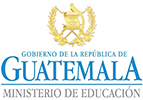
The Ministry of Education of Guatemala is an evolutive institution that generates teaching-learning activities which are streamlined with the opportunities that the 21st century offers. It aims at forming citizens with character, capable of learning for themselves, allowing students to develop and learn about the sociocultural context of Guatemala.
Website: http://www.mineduc.gob.gt/
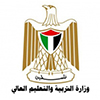
The vision of the Ministry of Education and Higher Education is constructed upon knowledge and innovation, interacting positively with the requirements of scientific and technological development, being able to compete in the scientific and practical fields while being open to regional and global cultures and markets. The MOHE aims at building a society based on gender equality, with human values and religious tolerance while advancing the education system, which is characterised by: accessibility, diversity of programs, versality, flexibility, efficiency, effectiveness, sustainability, responsiveness to local needs and quality.
The mission of the Ministry of Education and Higher Education is to ensure the provision of education for all and improve the quality and standards in order to meet the needs of learners and adapt to the requirements of this era, with the goal of providing a balanced environment that defends the rights of nationals, performs duties efficiently.
Website: http://www.mohe.pna.ps
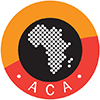
Continents around the globe face a lot of challenges as they try to reform and improve on the quality of their education and the African continent is not an exception. Most of the nations with some common characteristics normally join together to form curriculum organizations to help them to mitigate the challenges that come with curriculum development. Curriculum is looked at in a wider perspective as a weapon that is capable of changing the way different people view education. The African Curriculum Organization has the aim of promoting curriculum development, research, and curriculum support materials development and build synergies among other things.
Website: http://www.acuass.org
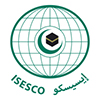
ISESCO is a specialised international intergovernmental organisation founded in 1979 by the Organisation of Islamic Cooperation (OIC) with headquarters in Rabat, Morocco. Its objectives include strengthening cooperation among its 54 Member States in the fields of education, science culture and communication; consolidate understanding among peoples inside and outside Member State; contribute to world peace and security through various means; publicize the true image of Islam and Islamic culture; promote dialogue among civilizations, cultures and religions; encourage cultural interaction and foster cultural diversity in the Member States, while preserving cultural identity and intellectual integrity.
Website: https://www.isesco.org.ma
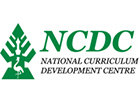
The National Curriculum Development Centre (NCDC) is an autonomous statutory body/agency under the Ministry of Education and Sports (MoE&S) responsible for the development of educational curricula for primary, secondary and some tertiary institutions in Uganda. Its functions include, inter alia, initiating processes for curricula research, review and/or reform, updating, testing and coordinating the implementation of educational curricula at all levels of learning (Primary, Secondary and Tertiary) as well as promulgation of guidance for the implementation of improved educational curricula and pedagogy.
Website: https://www.ncdc.go.ug
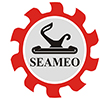
The Southeast Asian Ministers of Education Organisation (SEAMEO) is a regional intergovernmental organisation established in 1965 among governments of Southeast Asian countries to promote regional cooperation in education, science and culture in the region. As an organisation that has continued to nurture human capacities and explored the peoples’ fullest potential, the SEAMEO maintains its work and aspirations for development with peoples of the region to make lives better in quality and equity in education, preventive health education, culture and tradition, information and communication technology, languages, poverty alleviation and agriculture and natural resources. The organisation’s highest policy-making body is the SEAMEO Council, which comprises the 11 Southeast Asian education ministers. The SEAMEO Secretariat is located in Bangkok, Thailand.
Website: http://www.seameo.org
